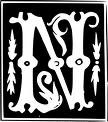"The study of magic is not a science, it is not an art, and it is not a religion. Magic is a craft... This is not to say that we understand magic, in the sense that physicists understand why subatomic particles do whatever it is that they do. Or perhaps they don't understand that yet. I can never remember."
"Anyone with a spark of the research spirit does not need to be exhorted to chase for all he is worth a really promising clue when one is found, dropping for the time being other activities and interests as far as practicable."
"To see what no one has seen before, look where no one has looked before."
(Because your response disappoints, on several levels.)
When I was a bit younger, in a used bookstore I came across a book on spells. Since I was investigating the effects of mind upon matter, I could not resist having a look. I came across a spell for attracting money (or some such), and I can remember thinking "I understand why that works." All the extra 'fluff' - the specific-colored candle (or whatever), etc. - fell away and it was clear how saying/doing whatever the spell 'required' simply created (and released) a specific set of visualizations/expectations/emotions about future outcomes. The 'fluff' is just a reinforcing support structure that works/helps because it taps an associated knowledge structure. (Yes, it works because you believe it works.)
Sounds like a load of 'useless crap' to many scientists. But why?
1) Perspective - It is difficult/unacceptable for the scientific method to make use 'data' that is only accessible from a subjective perspective. What goes on in my head is only really accessible to me. I can tell you about it, but you have no means of verifying anything I've said, other than to attempt to replicate it in your own mind. "To be termed scientific, a method of inquiry must be based on gathering observable, empirical and measurable evidence subject to specific principles of reasoning." (q)
2) Evidence - What constitutes 'acceptable evidence' of certain phenomena is, by current scientific definitions, evidence that can be procured under circumstances that specifically discount any collective effect of mind. For example: what can be produced in an environment where one is alone is required to be exactly the same as what can be produced in a room full of skeptical observers. Only then is the phenomenon deemed to be a 'true' phenomenon.
3) Correlations - Scientists are taught to look for correlations. They are also taught that correlation does not equal causation. What they are not taught is to look inside for correlations - to dissect and examine their own mental processes. The assumption is that there is no need to do this - that 'science' stands beyond/above the (non-local) influence of mind.
With the above limitations on what is acceptable 'science', it is no wonder that religious/magical belief systems persist. If data persists, then the search for explanations (and the attempts to harness this knowledge) will also persist, even if it is not/cannot be called 'science'.
4) Replication - Replication of something that requires a specific type of subjective awareness can be achieved, but it involves teaching a naive subject. Then, of course, you have only your word and the word of your pupil. (See #1.) This might be worth something if you had a pupil with the appropriate background, reputation, and integrity... But most people still will not believe a thing like that until they have experienced it themselves. However, narratives like that produced by William H. Keith can be powerful stimuli for people to start/continue their own explorations. "I was well aware that my senses could deceive, that my will to believe could play tricks on my mind, that what I seemed to be experiencing - my subjective reality - might well be different from things as they really were."
5) Falsification - "No amount of experimentation can prove me right; a single experiment can prove me wrong." (That's Einstein, not Keith.) Yes, we're still looking for that magical experiment that could prove this picture of reality to be wrong. (With a less-pedantic approach to things, you could be useful there. Skippy's best (though perhaps unintentional) contribution was simply asking the question 'Where does the entropy go?')
No doubt submitting this idea to peer-review in a journal would point out all these things, and more. But these are big enough problems to overcome, and we are already well-aware of them. If you can contribute nothing more than yet another 'burden of proof' argument, then you really don't bring anything to the table that wasn't already there and you should probably move on/back to some 'real' science. Best,
N
Monday, July 5, 2010
Subscribe to:
Post Comments (Atom)


No comments:
Post a Comment